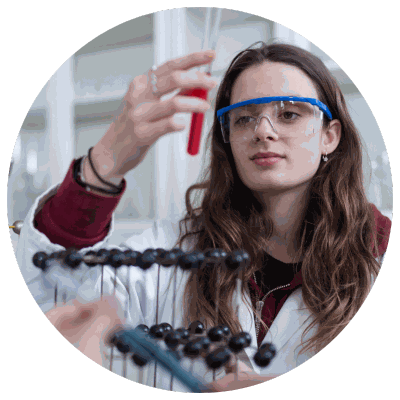Tiny microbes to offer benefits in decarbonization
June 17, 2023 | Microbiology Lab
Jing Huang, a Berkeley Lab postdoctoral researcher in the Keasling Lab and one of the first authors of the study, said: “This work enables us to perform the carbene chemistry without toxic solvents or toxic gases typically used in chemical synthesis. This biological process is much more environmentally friendly than the way chemicals are synthesized today.”
“For every new advance, someone needs to take the first step. And in science, it can take years before you succeed. But you have to keep trying – we can’t afford to give up. I hope our work will inspire others to continue searching for greener, sustainable biomanufacturing solutions,” Huang said.
Back To Top

